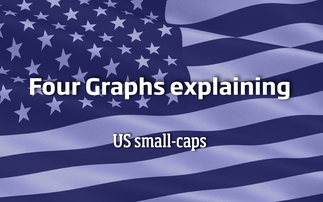Nearly a year after the Presidential Election, the US is still in a quandary over what it wants to do about healthcare.
That can create a lot of fear and uncertainty, and just the sort of hunting ground that is attractive to value investors.
That leads us to the US pharmaceutical distributors - a consolidated yet competitive industry with high barriers to entry, consisting mainly of three dominant players (McKesson, Cardinal Health and AmerisourceBergen).
Sharp drug price inflation over the past few years had been a tailwind for these companies. However, with drug prices recently in the political cross hairs, that tailwind has dramatically abated.
How could a new president impact the US's complex healthcare sector?
Faster-than-expected deceleration in generic drug pricing and moderating inflation in branded drug pricing has weighed on investor sentiment and company profits, pressuring shares.
In our view, the levels of drug price inflation seen over the last few years were more of an anomaly, and the current environment is likely more reflective of a normal operating environment.
Furthermore, drug pricing pressure is likely to continue to some extent as the US Food and Drug Administration accelerates generic approvals and drug manufacturers exercise pricing restraint.
So what makes these companies attractive? No matter how the healthcare debate shakes out, distributors are critical to the healthcare system - they have the scale and scope to get crucial pharmaceuticals to end-users in a time-sensitive and cost-effective manner.
With headlines and politics as a key driver, should healthcare be avoided?
More interesting, it is a relatively low capital intensity business that has generated significant amounts of free cashflow, resulting in high returns on capital.
The companies mentioned tend to have strong balance sheets due to the financial risk they pose to drug manufacturers from a working capital perspective and often yield significant bargaining power in price negotiations.
What is more, demographic trends should prove a tailwind. We believe they were unjustly punished in the sell-off last year, offering an attractive valuation for those unafraid to go toward fear and uncertainty.
Daniel Kane is portfolio manager on the US Value team at Artisan Partners
Bull Points
• Consolidated, competitive industry with high barriers to entry
• Low capital intensity business with ample free cashflow generation
Bear Points
• Political rhetoric may continue to pressure sentiment
• Accelerated drug price deflation













